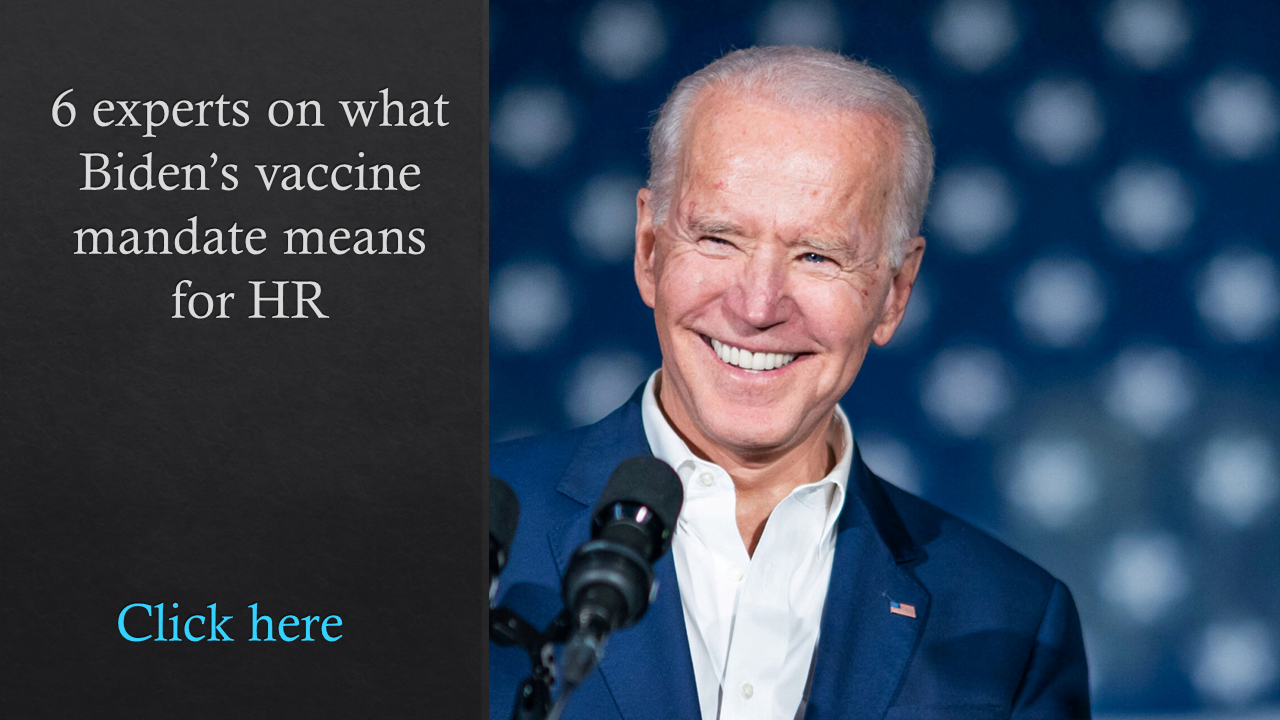Kroger announced this week that it will eliminate paid leave for unvaccinated employees who get COVID-19 and require some of them to pay a monthly health insurance surcharge starting next year, a further sign that employers are getting more serious about COVID-19 strategies.
The announcement from one of the country’s largest employers—the grocer has nearly 500,000 employees—comes amid the growth of the Omicron variant, which is expected to surge in the coming weeks. It also comes as the Biden administration’s vaccine mandate, which was set to go into effect Jan. 4, remains tied up in court and faces an uncertain future.
Kroger’s move is significant as it sends strong messages to employees who choose not to be vaccinated, and it may spur other employers to follow suit, says Carol Morrison, senior research analyst at the Institute for Corporate Productivity (i4cp). “We know that HR and talent leaders in other organizations are closely following these actions and studying the strategies their peers are using elsewhere as well to address concerns about unvaccinated workers,” she says.
 Kroger isn’t the first employer to turn from carrots to sticks in employee vaccination efforts. Delta Airlines became one of the first well-known companies to announce it would penalize unvaccinated employees. Those employees who are enrolled in the airline’s account-based healthcare plan have to pay a $200 monthly surcharge.
Kroger isn’t the first employer to turn from carrots to sticks in employee vaccination efforts. Delta Airlines became one of the first well-known companies to announce it would penalize unvaccinated employees. Those employees who are enrolled in the airline’s account-based healthcare plan have to pay a $200 monthly surcharge.
“If raising premiums proves an effective tool for encouraging healthy behavior—getting more workers vaccinated—we very well could see more employers use this strategy,” Melissa Jezior, president and chief executive officer of Eagle Hill Consulting, told HRE recently. “Employers and employees are anxious to get back to normal, and higher vaccination rates seem like the only viable approach.”
Related: Surcharges for the unvaccinated: Will interest grow?
The most recent vaccination data from i4cp in September found fewer than 5% of companies already were or were planning to implement a surcharge for healthcare coverage for unvaccinated workers. However, at that time, nearly one in four said they were considering it.
When vaccines were first made available earlier this year, the vast majority of employers aimed to encourage employees to get inoculated with such incentives as financial perks, paid time off and raffles. But a confluence of events—the Delta variant, the Omicron variant, waning vaccination rates, and President Biden’s rule on vaccine mandates—is causing employers to get more aggressive. Biden’s rule requiring employers with 100 or more workers to implement a COVID-19 vaccination requirement for their workers or offer a weekly testing alternative to those who refuse or are unable to receive a vaccine is currently on hold.
Related: OSHA suspends vaccine enforcement; what’s the next move for HR?
“Companies have tried all sorts of positive incentives, and Kroger is still doing that by offering employees a $100 incentive to get fully vaccinated,” Morrison says. “But when those positive incentives are no longer driving high numbers of vaccinations, and infection rates are ticking up again, it’s natural that organizations might opt to take the opposite tack by penalizing those who still won’t get vaccinated.”
 An increasing number of employers are turning to vaccine mandates for employees as well. Despite the uncertain future of Biden’s employer mandate, research shows that many employers aren’t wasting time in putting employee vaccination mandates in place. A survey of 543 U.S. employers from consulting firm Willis Towers Watson—conducted before the discovery of the Omicron variant—finds that 57% of all respondents either require or plan to require COVID-19 vaccinations for their employees.
An increasing number of employers are turning to vaccine mandates for employees as well. Despite the uncertain future of Biden’s employer mandate, research shows that many employers aren’t wasting time in putting employee vaccination mandates in place. A survey of 543 U.S. employers from consulting firm Willis Towers Watson—conducted before the discovery of the Omicron variant—finds that 57% of all respondents either require or plan to require COVID-19 vaccinations for their employees.
Related: How employers are reacting to the hold on Biden’s vaccine mandate
As cases continue to surge and leave many employers vulnerable, it makes sense that more organizations will look at a variety of strategies—including penalties—to try to boost vaccination rates among their employees.
“HR and business leaders are going to keep a close eye on what happens in the wake of Kroger’s decision,” Morrison says. “And increasingly, those leaders who feel pressed to provide safe working conditions, maintain their companies’ reputations as responsible corporate citizens, and do their financial duty to keep costs down will be more open to trying more of the stick versus carrot strategies to encourage vaccinations.”
